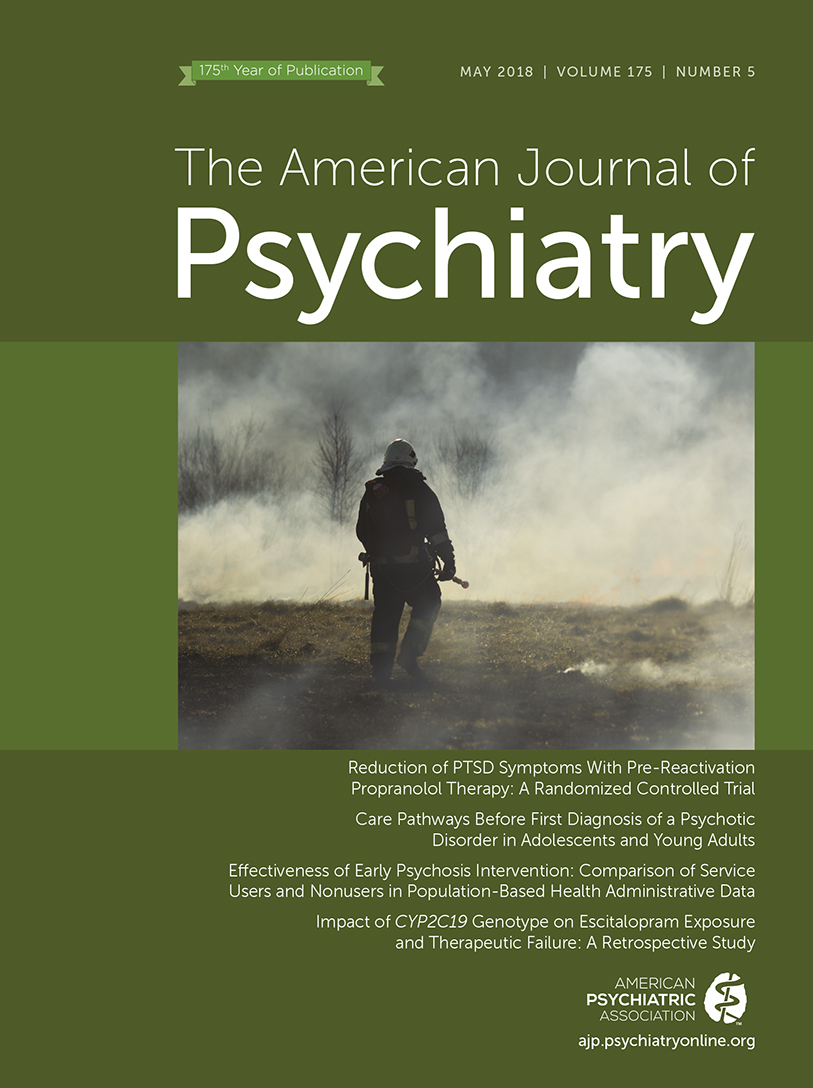Concerns Regarding the Proposed New Diagnosis of “Modern-Type Depression” in Japan
To the Editor: The Perspectives in Global Mental Health article by Kato and Kanba (1), published in the November 2017 issue of the Journal, proposes a new diagnosis called “modern-type depression” (MTD). I believe there is no need for MTD as a new diagnosis. I have encountered many similar cases in Japan in my work. As an APA member for more than 25 years and as a clinical psychiatrist specializing in anxiety and depressive disorders, I have treated patients using DSM-5 without any need for a new diagnosis.
The case of Mr. A described in the article could be diagnosed, per DSM-5, as unspecified depressive disorder with atypical features comorbid with social anxiety disorder. The likelihood of social anxiety disorder is supported by the patient’s indulgence in video games (he may be prone to hikikomori), lack of desire for social life, and inability to express his opinion in the workplace. The diagnosis of atypical depression comes from the patient’s withdrawal from work in response to a perceived insult by his supervisor (rejection sensitivity) and from the enjoyment of attending parties despite requiring absence from work because of sickness (mood reactivity). In the second episode, a feeling of heaviness (leaden paralysis) was exhibited. This notion is supported by a clinical study reporting that 76.1% of patients with social anxiety disorder also had major depression, 77.1% of which were atypical cases (2). It is assumed that the evasion of work or duty (“slacking off”) seen in Mr. A is due to sudden leaden paralysis or phobic feeling (rejection sensitivity) in response to unfavorable events and/or an anxious-depressive attack (3), which is often seen in atypical depression. Slacking off appears to result entirely from pathological symptoms, not from patients’ laziness (4).
A major shortcoming of Kato and Kanba’s article is the absence of either structured diagnostic interviews or clinical psychological batteries (1). Social anxiety disorder in major depression is typically recognized using semistructured interviews at a rate 15.5 times higher than that of unstructured interviews (5).
The authors’ suggestion that generational changes in education and culture have resulted in the appearance of depression requiring a new diagnosis appears to be overly speculative and without clear evidence. I believe that the ongoing examination of patients using DSM should be the first step for accurate diagnosis, increasing the likelihood of positive outcomes for patients’ well-being.
1 : Modern-type depression as an “adjustment” disorder in Japan: the intersection of collectivistic society encountering an individualistic performance-based system. Am J Psychiatry 2017; 174:1051–1053Link, Google Scholar
2 : Relationship between atypical depression and social anxiety disorder. Psychiatry Res 2015; 225:79–84Crossref, Medline, Google Scholar
3 : Distinctive clinical features of “anxious-depressive attack.” Anxiety Disorder Research 2017; 9:2–16 https://www.jstage.jst.go.jp/article/jsad/9/1/9_2/_pdf/-char/jaCrossref, Google Scholar
4 : The Promiscuous Depression: A Misunderstood Atypical Depression. Tokyo, Chikumashobo, 2007Google Scholar
5 : Clinician recognition of anxiety disorders in depressed outpatients. J Psychiatr Res 2003; 37:325–333Crossref, Medline, Google Scholar



